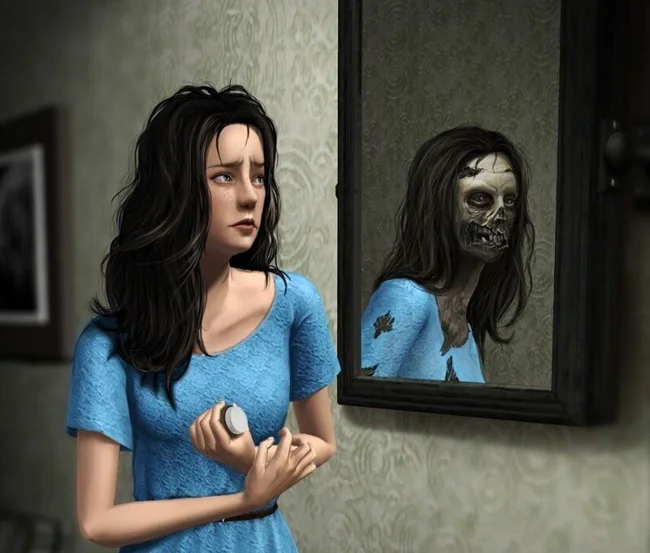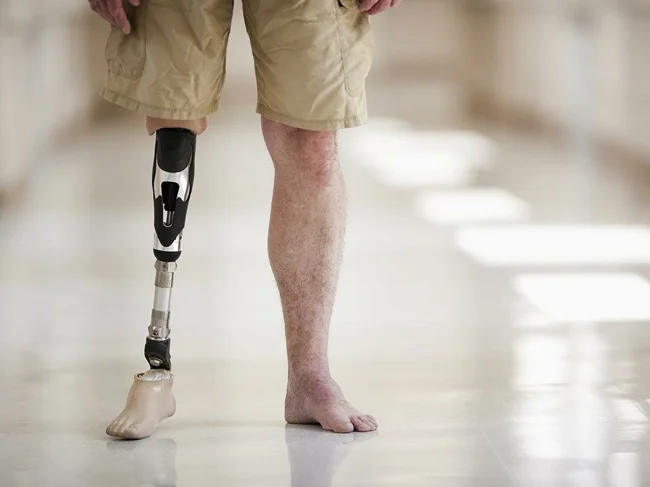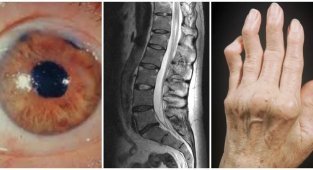Medicine has advanced by leaps and bounds over the past hundred years. Not only many diseases have been discovered, but also a treatment has been found, thanks to which mortality has decreased significantly. 
But sometimes doctors can only shrug their shoulders in bewilderment. These diseases are not so common, but those unfortunate people who are unlucky have a hard time. After all, rare diseases often have no cure.
Cotard's disease 
Or, as it is also called, “zombie syndrome”.
People suffering from this disease firmly believe that they are either already dead or rotting alive. Everything that happens around is life after death. The exact causes of “zombie syndrome” have not yet been identified, but it may be caused by schizophrenic tendencies, severe depression and head injuries. Cotard's disease cannot be classified as a separate disease - it is one of the forms of depressive-paranoid schizophrenia.
Foreign accent 
It even smacks of some mysticism. There have been cases when, after a stroke, prolonged headaches or brain injury, a person begins to speak his own language, but with an accent. With the accent of a country where he not only did not live, but had never even been. Doctors say that this is due to those parts of the brain that are responsible for speech.
Such cases, even if rare, provide an opportunity to continue to explore all the capabilities of the brain.
Progeria 
Benjamin Button is not a fiction, but the opposite progeria. Children born with this disease are born without visible abnormalities, but after a couple of years they begin to age rapidly. They develop wrinkles, hair loss, and by the age of 13 they complete their life cycle, going through it completely at an accelerated pace. There is indeed a case where a Japanese man suffering from progeria lived for 45 years.
Progeria is a congenital disease. For unknown reasons, the body activates the aging mechanism. But it is extremely rare - only 80 cases of the disease are known.
Hypertrichosis 
This disease has a more terrifying name - “werewolf syndrome”. Excessive hair growth throughout the body, which may not be typical for either men or women. This syndrome can be congenital, or resulting from improper use of hormones, head injury, or anorexia nervosa. More often this disease is observed in women and only acquired hypertrichosis can be cured.
Alien hand syndrome 
It is also called “Dr. Strangelove syndrome,” like the hero of Kubrick’s film, whose hand could begin to strangle its owner or perform a Nazi salute on its own.
This syndrome was first described in the 19th century by Kurt Goldstein, a German neurologist. He was studying his patient, who in her sleep could begin to be strangled by her own hand. Goldstein did not identify any mental abnormalities in the woman, and only posthumously was damage found in the brain, which disrupted the transmission of signals between the hemispheres. This is what led to the emergence of the syndrome.
In the 1950s, the number of people with this syndrome increased sharply when doctors began trying to treat epilepsy by cutting the hemispheres. Most often, the hand shows aggression towards its owner.
Impaired perception of body integrity 
This is a syndrome in which a person does not feel complete until a certain part of his body is amputated. This is not at all a desire for new sensations, but rather a malfunction of the brain, which perceives fingers, legs or arms as a foreign object. Neither psychotherapy nor medications help.
The “foreign” organ is usually healthy and fully functional. This is precisely what becomes a stumbling block, because the surgeon does not have the right to amputate a healthy limb - otherwise he faces trial. A person with this disorder can spend years looking for a surgeon who would agree to save his “stranger” and may take radical measures: shoot himself in the leg or arm, freeze his limbs, or even try to saw it off on his own. People with a violation of the perception of integrity know very well exactly where they need to be removed and after the operation they can say that somewhere they were not cut. When what they want finally happens, they feel incredibly happy and say that they wish they had done it much earlier.
It's scary that this can't be stopped somehow.
0 comments

